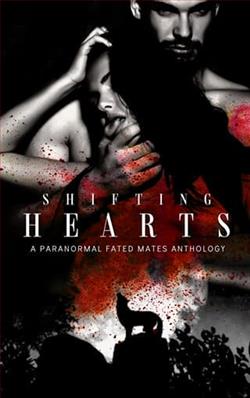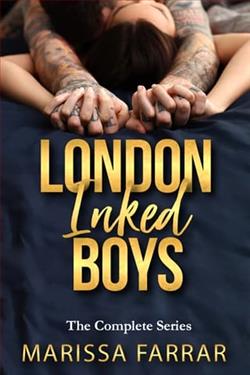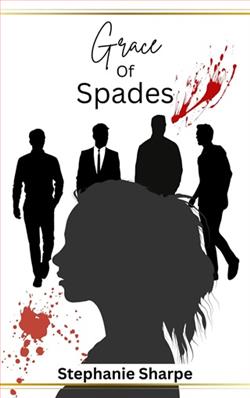Page 25 of The Darkness
She wasn’t entirely sure why he had invited her on this trip.
Most of the time he was nice, though there was an intensity about him that made her a little uncomfortable. But he had told her they were friends, and she could really use a friend in this strange country.
She had the feeling he wanted more than just friendship, though; that he harboured stronger feelings for her, but she knew that nothing would ever happen between them.
She had almost turned down his invitation to go on a trip out of town, but decided in the end to embrace this chance to enjoy life a little. She was fairly confident he wouldn’t make a move; tried to convince herself he was simply doing her a favour.
After all, what was the worst that could happen?
XIII
The mother had lost her job, not that this should have come as any surprise. Her boss had been dubious about her being a single mother from the first, telling her bluntly that he preferred to employ childless women: they were more reliable and could keep their mind on the job.
Then, one day, he informed her that she needn’t bother coming in the next day. She protested that she had a right to a longer period of notice, but he disputed this, denying that he owed her a króna more than he’d already paid her. The following days had been a nightmare, as her worries had proved infectious, making her daughter even more fractious than usual. She calculated how long they could survive on her small pot of savings, how long they’d have enough to eat, how long it would be before they were thrown out of the flat she was renting. The answers didn’t look good, however many times she did the sums.
Which was how she ended up swallowing her pride and moving back in with her parents, this time with their grandchild in tow. The old couple quickly came to dote on the child, though their behaviour towards their daughter was cold to begin with. The little girl grew especially close to her grandfather, who would read to her and play with her, but it was as if this caused the fragile bond between mother and daughter to fray, to slowly unravel, until the terrible day when her daughter stopped calling herMamma.
XIV
It was still fairly light when they set off. Once they had left town, the traffic thinned out until, eventually, they turned off on to a sideroad that appeared to be little used. A chain with a sign in the middle had been strung across it, as if to block it off to vehicles.
She turned to look at him and asked if the road was closed.
Nodding, he swung the wheel, swerving off the road then back on to it, on the other side of the chain.
‘Is it safe?’ she asked nervously. ‘Are we allowed to drive on it if it’s closed?’
He replied that the road wasn’t exactly closed; the sign was just there as a warning that it was impassable.
Again, she experienced that creeping feeling of misgiving, that it was a bad idea to have come on this trip.
‘Impassable?’ She kept her eyes fixed on his face.
‘Don’t worry,’ he said, patting the wheel and smiling at her. ‘Give this baby a chance to show us what she can do.’
In contrast to the bleak, wintry world outside, it was warm in the car, the heater pumping in a constant blast of hot air. She thought about her parents’ car back home. The heater had never worked.
She looked out at the landscape, at the vast, treeless expanse, enchanted but a little afraid. Everything was so white, as far as the eye could see, apart from the odd glimpse of black – rocks, perhaps, or tufts of grass. A faint blue light hung over the mountains; the beauty was all-encompassing. It was so peaceful, too. Although they hadn’t been driving long, they might have been alone in the world. The isolation was thrilling, yet at the same time it frightened her. The landscape felt somehow cruel and unforgiving, especially now, in winter; nature didn’t care if you lived or died. It would be terrifyingly easy to get lost here.
Abruptly, she was jolted out of her thoughts as the car skidded in the deep snow and, for one horrible moment, she thought they were going to veer off the road and roll over. Heart pounding, she braced herself for the impact. But her fears proved unnecessary, as the car righted itself.
The radio was emitting a flow of words that she couldn’t understand. It sounded like a monotonous recital of facts.
In the end, she felt compelled to ask what the announcer was saying.
‘It’s the weather forecast,’ her companion replied.
‘So what’s the forecast like?’
‘Not too good,’ he said. ‘They’re predicting a heavy snowfall.’
‘Shouldn’t we …’ She hesitated, then said it: ‘Shouldn’t we turn back, then?’
‘No way,’ he replied. ‘Bad weather will just add to the thrill.’
XV
When her phone rang, Hulda was standing by the hot-dog stand on Tryggvagata, grabbing a quick snack in the evening sun. This particular stand had been an important landmark in Icelandic cuisine for decades. Long before the concept of the takeaway was introduced to the country, its hot dogs had taken on the status of a national dish. Later, the stand had been given the international seal of approval when a former US president had stopped there for a hot dog while on a visit.















